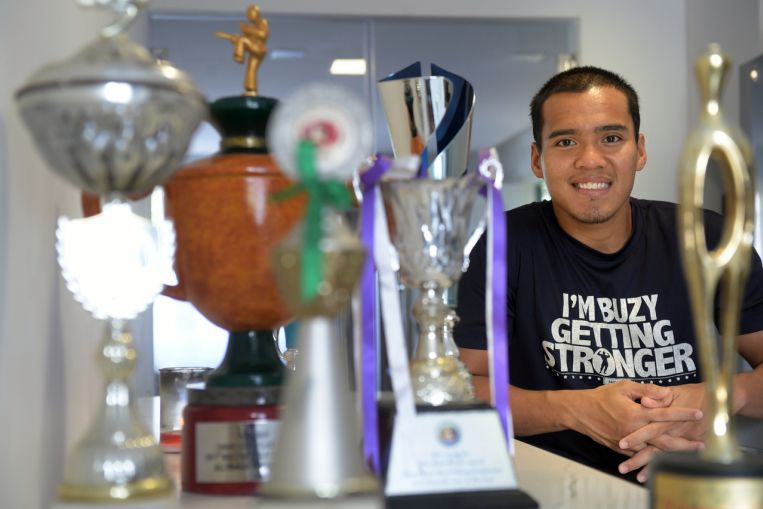SINGAPORE – Shakir Juanda’s journey to becoming a silat world champion required all forms of sacrifice. One of the hardest was moving across weight divisions – in his 15 year career, he competed across seven, from class C (55 to 60kg) to I (85 to 90kg) – and these took a toll on him mentally and physically.
It was especially hard during the early years in the sport as he struggled to find healthy ways to make weight for competitions. He resorted to methods like jogging for over an hour at noon with his rubber jacket to lose weight.
To qualify for a higher weight class at the 2009 SEA Games, Shakir turned to food such as burgers and nasi lemak. There were times when he would force his food out because he felt guilty about the amount he ate.
“When I weighed after the exercise I felt good because I lost some weight. But I became very moody, threw tantrums, so it wasn’t healthy,” said the 32-year-old, who was speaking at a webinar titled ‘My Health, Mind & Body: Food – Friend or Foe’ on Saturday (May 29). The talk was part of a series organised by the Singapore National Olympic Council’s Women in Sport Committee to educate people on a topic that is often viewed as taboo.
It was only when Shakir, who retired in 2018, moved from the junior category to the senior set-up that he became more aware of the health risks. He said: “Knowledge is power and having proper plans and trusting in the programme will also help you meet your goals. It’s important to have the discipline and consistency to follow the programme.”
Cheryl Tay, who participates in Ironman triathlons, also struggled with body image issues when she was younger. She over-exercised and relied on slimming pills to lose weight.
But things changed about six years ago when she began to find joy in different forms of exercise like crossfit. She also completed her first half-marathon around that time.
Tay, 34, said: “My mindset started to shift – I’m just going to focus on what my body can do for me instead of trying to force it into something that it’s not. When you take care of your body that way, your body will settle at some point.”
Her experiences inspired her to start her own body image movement ‘Rock The Naked Truth’ in 2016 to help others.
Another participant at the webinar, head of sports nutrition with National Youth Sports Institute Dr Jamie Lye, stressed caution for those on diets. She said: “There’s no ideal body shape and diet most of the time so it’s not worthwhile to chase a number (on the scale) or an ideal (body type). It’s important to have a conversation with the people who you’re comfortable with.”
Dr Carolyn Nahman, a child and adolescent consultant psychiatrist who works with teenagers and elite athletes with eating disorders, shared some advice about how parents can support their children even if they may not be immediately receptive.
The deputy chair of the RCPsych Sport Psychiatry SIG in the United Kingdom noted a sensitive approach was key and added expressing concern and checking in on athletes is also crucial amid the ongoing pandemic.
“There’s been that uncertainty, that anxiety, that disruption of routines and that disruption of social contexts and that’s an environment in which eating disorders thrive,” said Dr Nahman, who is also a member of the International Society for Sport Psychiatry.
She also referred to some studies that showed that athletes who were not closely supervised were doing more cardiovascular training and less strength training, leading to injuries.
She said: “It’s about checking in on overall well-being, talking to the person as an individual. It helps to detect the difficulty in the problem of anxiety.
“There are coaching teams who have done Zoom quizzes and things that aren’t just about sporting and physical activity. Sometimes that social side is really important in terms of overall well-being.”
Join ST’s Telegram channel here and get the latest breaking news delivered to you.
Source: Read Full Article
